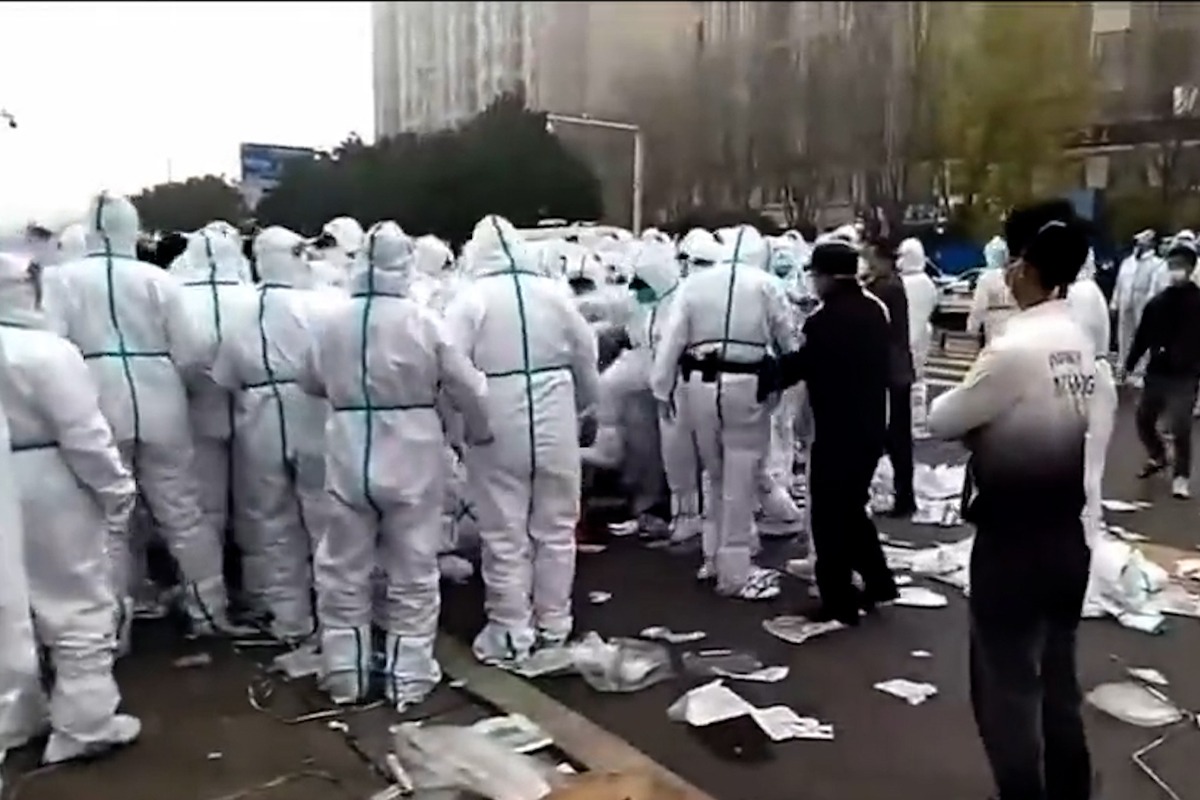

The UN urged China not to detain people simply for taking part in peaceful protests, as Beijing tried to curb a nationwide spate of demonstrations demanding political freedoms and an end to Covid-19 lockdowns.

As protests swept China over the weekend, public outrage against ‘Zero Covid’ restrictions turned into widespread uproar challenging Xi Jinping’s Communist regime.
On Monday, after residents erupted in protest, authorities increased security in Shanghai. People shouted slogans critical of Chinese President Xi Jinping and the country’s ruling Chinese Communist Party during the demonstrations.
Young protestors were seen holding up ‘blank sheets’ of white paper representing the lack of freedom of speech and expression under the Communist rule.
In Beijing, students at Tsinghua, one of China’s most prestigious universities and Prez Xi’s alma mater, shouted “We want democratic rule of law, we want freedom of speech”, as reported by NBC.
The UN urged China not to detain people simply for taking part in peaceful protests, as Beijing tried to curb a nationwide spate of demonstrations demanding political freedoms and an end to Covid-19 lockdowns.
UK PM Rishi Sunak termed it “unacceptable” after BBC said that one of its journalists Ed Lawrence was detained while covering protests on Sunday. In its reply, China’s foreign ministry said that Ed Lawrence had not identified himself as a journalist.
Later on Monday, the Chinese government reiterated their stance after the weekend turmoil. Reportedly, Chinese Foreign ministry spokesperson Zhao Lijian said that the country’s fight against COVID-19 will be ‘successful’.
NBC News quoted Zhao Lijian as saying at a press briefing, “We believe that with the leadership of the Communist Party of China and the support of the Chinese people, our fight against Covid-19 will be successful.”
However, the current scale of protests don’t seem to pose a great threat to Xi Jinping who was recently elected for a third consecutive term. After a stormy weekend, the protests appear to have died down.
It all started with a fire killing 10 people in Urumqi, capital of the western Xinjiang region. Frustrations mounted as citizens blamed that severe lockdown measures hampered rescue efforts.
Residents of the city in Xinjiang province have been reeling under the pressure of strict COVID measures with reports suggesting people are experiencing hunger and dwindling supplies of medicine and daily necessities.
In a report, RFA stated that at least 22 people died of starvation or lack of medical attention on a single day in the northern Xinjiang city of Ghulja.
The Uyghur episode is reminiscent of the two-month long harsh lockdown in Shanghai in May this year, where residents complained of poor quality of essential commodities.
As newer variants of the coronavirus crept into China, public outbursts have become increasingly common.
Earlier this month, workers at the Foxconn factory in Zhengzhou, which makes iPhones, staged a mass breakout amid fears of being shut inside premises.
Ikea shoppers in Shanghai forced their way out of the doors in August to escape being locked in.
China recorded 40,052 new Covid cases on Monday, with a total number of cases reaching 200,000 in a week, reported BBC.